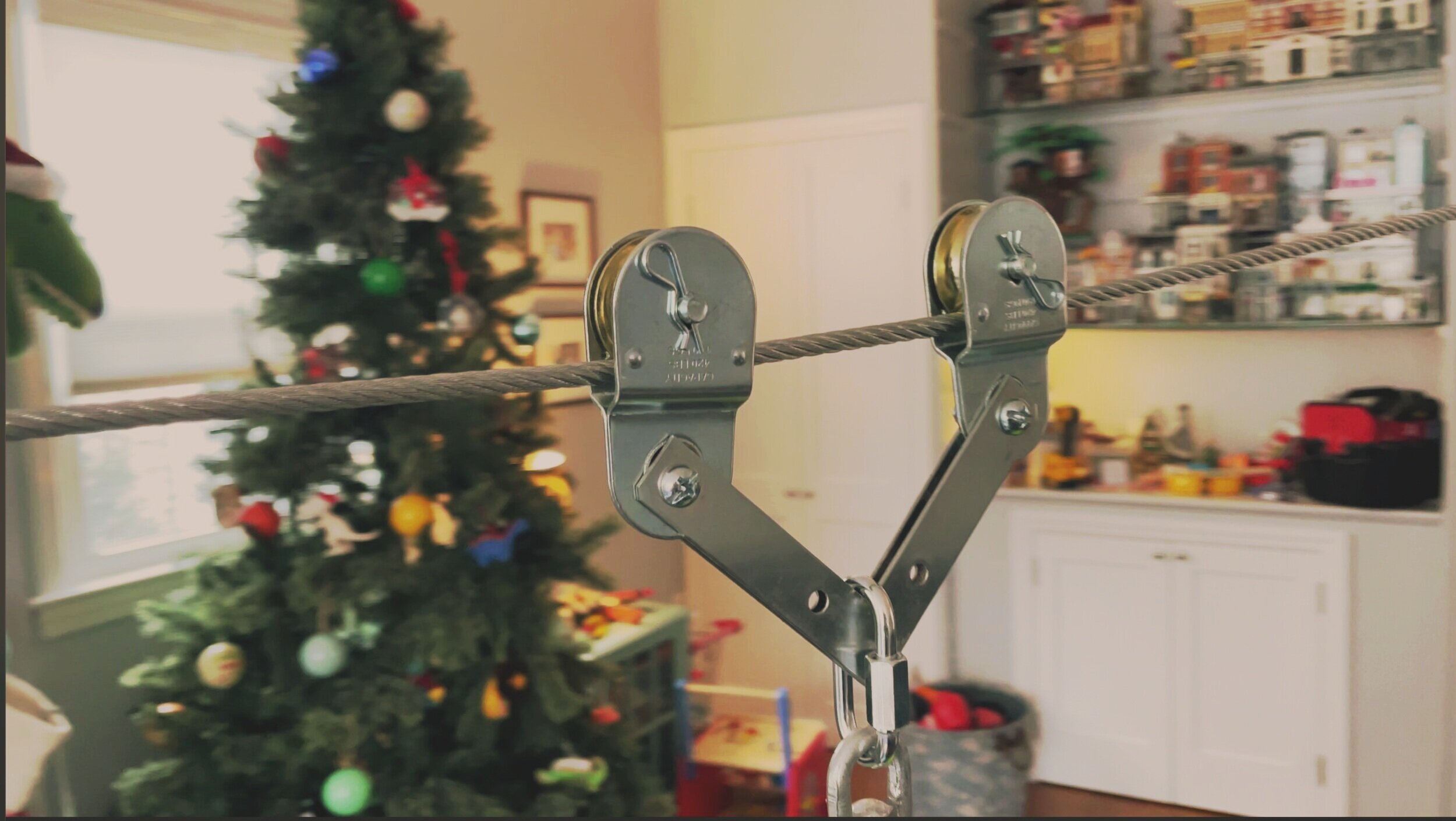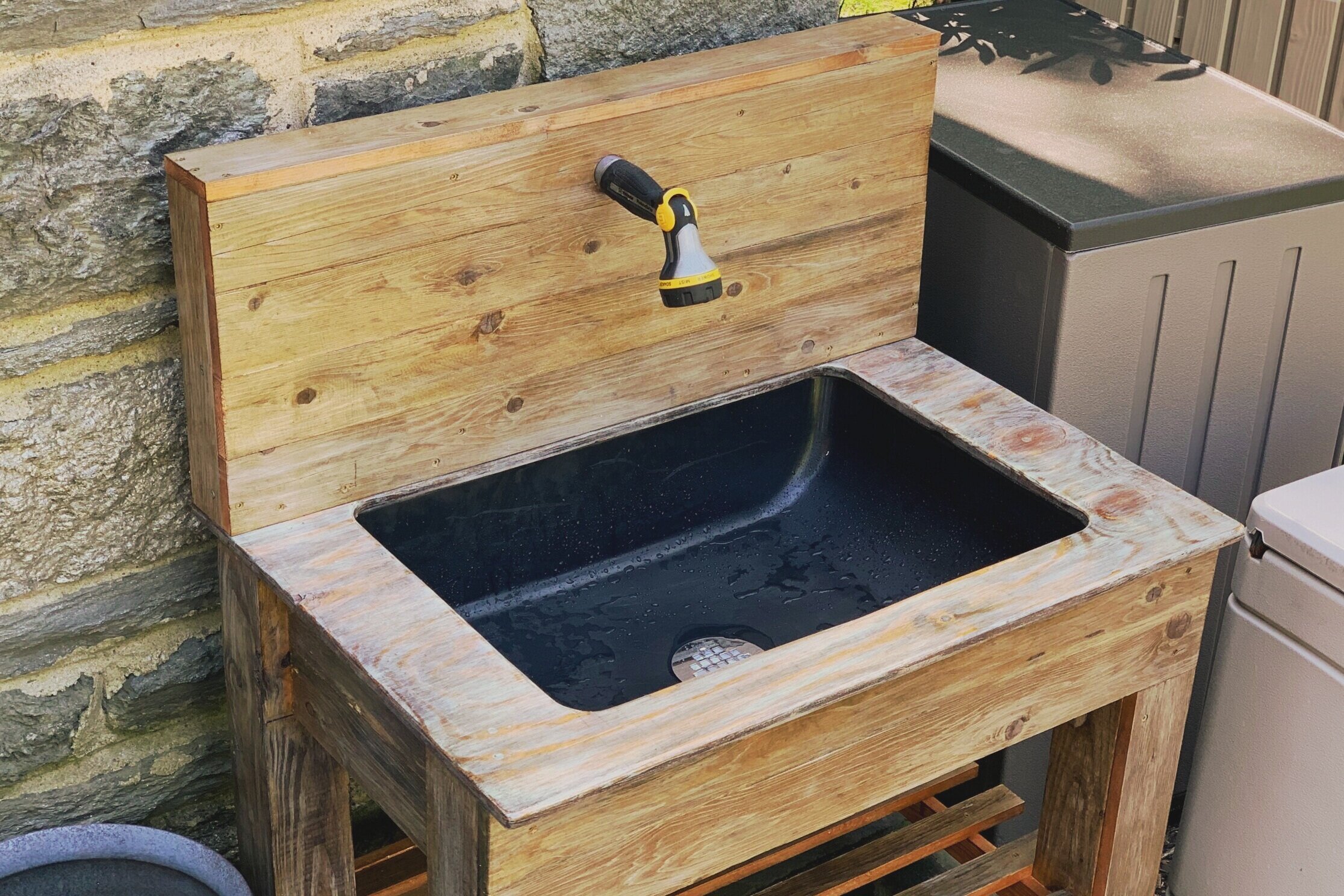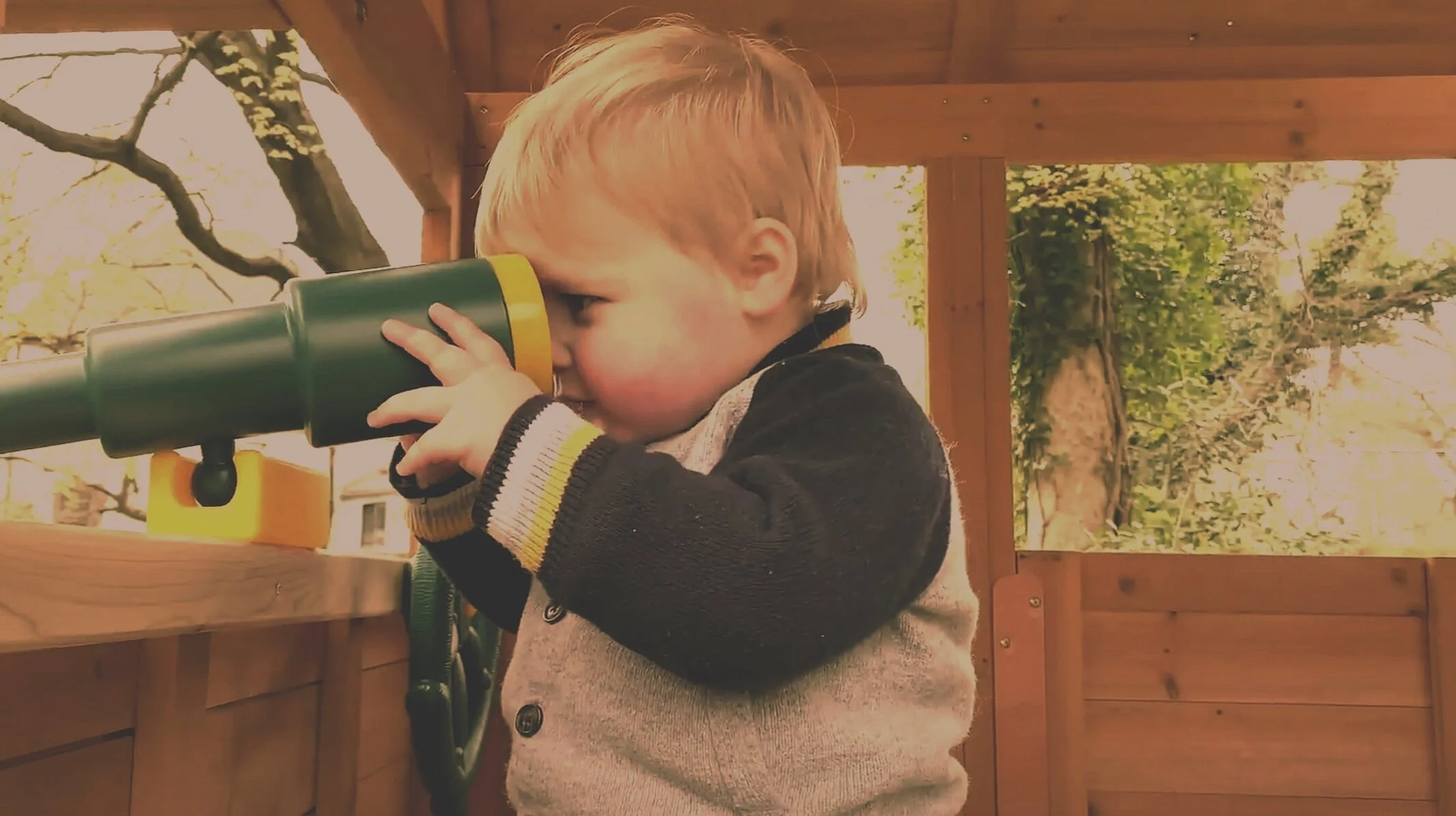The new expertise
While in the throes of building my kids a family-friendly yet surprisingly robust indoor zipline, I got to thinking about the many strange and wonderful projects I’ve gotten myself into over the years. Throughout the pandemic they’ve been the primary outlet for my creative and problem-solving fix. I started thinking about how I might present them as case studies to a prospective employer. Perhaps they might offer a truer glimpse into my fundamental nature, unobscured by the influences and theatrics of the professional world. What might be gleaned from an understanding of how and why I work in its most pure and honest form?
None of the projects fall within my areas of expertise, often quite the opposite. All were things I had to figure out, picking up whatever knowledge or skills I needed as I went. With no clear plan, I improvised my way through ambiguity. I found ways to make clever use of what I had; I was resourceful. Despite failures, setbacks, and frustrations, I persisted. One way or another, I reached my desired outcome, and managed a respectable level of quality.
Apparently, that’s what I do when left to my own devices: I choose things I don’t know how to do and make a little game of doing them well.
A keen employer might see that I’m intrinsically motivated to learn and solve problems, and that I work to my own high standard. I can learn on the fly, and rapidly acquire new skills. I can improvise and work with what I’ve got. I’m comfortable with ambiguity, and making decisions with incomplete information. Taken together, these traits describe a highly capable employee – an asset that can be broadly deployed into the stickiest of situations, with a high certainty of success.
A truly savvy employer might understand that increasingly, the ability to work this way will be a more reliable indicator of future success than the measure of a candidate’s specialized knowledge, experience, and skills that are relevant today.
That’s yesterday’s expertise, and it’s not going to solve tomorrow’s problems.
It’s value hinges on the assumption that things will continue along the predictable linear path of incremental change we’ve all settled into.
The future of work promises nothing of the sort. The pace of disruption and change will only continue to increase – exponentially so. Ambiguity and uncertainty will be our constant bedfellows. There won’t be time-outs for us to learn new skills and amass expertise before we need to put it into practice. The value of our old skills will plummet, and new skills will be needed with ever-increasing frequency. Employers who went all-in on the knowledge and skills of yesteryear will find themselves unable to adapt quickly enough.
Obviously, some measure of today’s expertise will always be table stakes. But the true value differentiator resides in a candidate’s future potential. Can they quickly spin up on new things and become proficient? Are they inclined toward figuring things out for themselves? Are they generally good at stuff? That’s the expertise we’ll need tomorrow. And that’s what we should be hiring for.
And yet it seems as though employers remain stuck in the weeds. They scrutinize and quantify past performance, hoping for a candidate who knows exactly how to do what needs to be done today. Someone who’s done it all before, and will do it all again. The longer you’ve been doin’ it, the better. Let’s go down this list and be sure you’ve done every single thing before. Because God forbid you should have to figure anything out, or pull something out of your ass. We can’t have you just making things up as you go.
It’s hard to blame them. They’re risk-averse, and people are always finding new and unexpected ways to be incompetent. And obviously, experience matters. But they’re being myopic. In their pursuit of a safe bet today, they neglect the long game.
So, what exactly might we expect this future to look like? How might the value of various skills and abilities change over time? What sorts of shifts can we already see happening? And what the hell are we supposed to do about it?
Good questions, all. In short, we’ll need to start playing fast and loose. We’ll be making shit up all over the place. We’ll need to change how we work – become more malleable and responsive – less “fixed” in the whats and hows of delivering our value.
Acquiring knowledge > Having knowledge
Of course, having knowledge will always be valuable. But our model for thinking about knowledge isn’t really accurate. We think of it as relatively static, known quantity – accumulating over time, and aging like fine wine. In reality, it’s a highly dynamic process that ebbs and flows. We hold onto knowledge as long as it’s useful to us; it’s fleeting. The current rate at which the knowledge we need to do our jobs changes substantially is gradual enough to escape our notice. We have time to assimilate each new piece that comes along.
As with all things, the pace of that change is only increasing. With less time to learn and absorb new knowledge, we’ll need to embrace a more transient relationship with it. Our ability to quickly acquire it, use it, and let it go will prove more useful than our ability to hang onto it. We’ll function more as conduits – rather than reservoirs – of information. We’ll rely more heavily on accessing the collective knowledge (google), and assembling whatever working knowledge we need to accomplish our task.
We do this all the time. While building this very website, the only way I could customize it to suit my needs was by modifying the CSS template. My toddler-like understanding of CSS was woefully unsuited to the task. Luckily for me, tutorials and code snippets are freely available for just about anything I wanted to do. In the beginning, I copied and pasted code that I didn’t really understand, followed the instructions, and moved on. I didn’t even have to form a working knowledge to accomplish my task. I just directly applied available information (shout out to this lass who proved most helpful of the bunch).
As I went, I gradually formed a better and better understanding of how it all worked. Eventually I was writing new code on my own. In the end, I had written thousands of lines of code, had accomplished my task, and as a byproduct – had learned a great deal about CSS.
This is a key point – learning wasn’t a deliberate undertaking that preceded implementation. It was an unintended byproduct of plowing directly into something I didn’t know how to do.
I had neither the time nor the need for a ground-up education on CSS. I cheated and half-assed my way through. To a layperson, the resulting output appears sufficiently advanced as to be indistinguishable from the work of an expert. To have reached this level of proficiency in the time it took me seems to imply a savant-like aptitude. But nothing is as it seems. It’s simply what happens when you pair a motivated, capable person with a powerful computer that can access the sum of all human knowledge. ‘Tis all.
The example of centaur chess illustrates this key takeaway: that a human/computer team crushes either one alone. And that’s really what we are. The skills of the future revolve around adapting to and fully exploiting that partnership.
Doing this well is a mashup of few different skills, which will evolve as well. Today, we have to be fluent in the language of the search algorithm to find what we need. Then we have to deftly navigate a minefield of garbage, and sift the good information from the bad. Perhaps someday this hellscape will evolve into a more efficient tool for doing this. Or God help us all.
Skill elasticity > Skill depth
First let me say that there will always be a place at my table for mastery in all it’s forms. It’s a worthy endeavor that I aspire to in many ways. But I’ve learned over the years is that true mastery is rarely what’s needed. Nobody can wait for it and nobody wants to pay for it. The vast majority of the world operates on work that’s done well enough. Ideally it exceeds expectations, but for the most part, improving beyond that yields diminishing returns. And with the exception of French and the violin, I’ve found that if you’re adequately motivated – most things aren’t that difficult to do passably well.
Specifically, we’re talking about knowledge skills – which really boil down to the application of the knowledge we discussed earlier. The “skill” resides in how effectively you can put the available knowledge to use. In my CSS example, I started with no knowledge and no skill – I copied, pasted, and followed instructions. By the end, I had a sizeable working knowledge, and enough skill to apply that knowledge in new ways to solve new problems.
And so, our relationship with skills and knowledge are intertwined. The deeper our working knowledge becomes, and the longer we use it, the greater our skill in wielding it.
What we do ≠ Who we are
The knowledge and skills we put to use won’t inhabit us and become a part of our identity. Often our initial barrier to learning new things stems from how we define ourselves: I’m not a coder, I’m a designer. These labels imply ownership of specific knowledge and skills, at the exclusion of others.
Perhaps thinking of ourselves less as nouns and more as verbs is a succinct way of stating my overarching point: it’s what we’re doing, not who we are. “I’m coding” imparts no constraint on what I’ll be doing next.
We would do well by dismantling these mental barriers, and start thinking about our value not as the set of knowledge and skills we have, but as the unique, evolving process through which we create value. This is what truly differentiates us, and by cultivating this process – rather than accumulating knowledge and skills – we embody the new expertise.
. . .
Do you have some intractable problems that need figuring out? Looking for a highly capable creative who’s generally good at stuff? Drop me a line: billhoran@gmail.com















We should start thinking about our value not as the set of knowledge and skills we have, but as the unique, evolving process through which we create value.